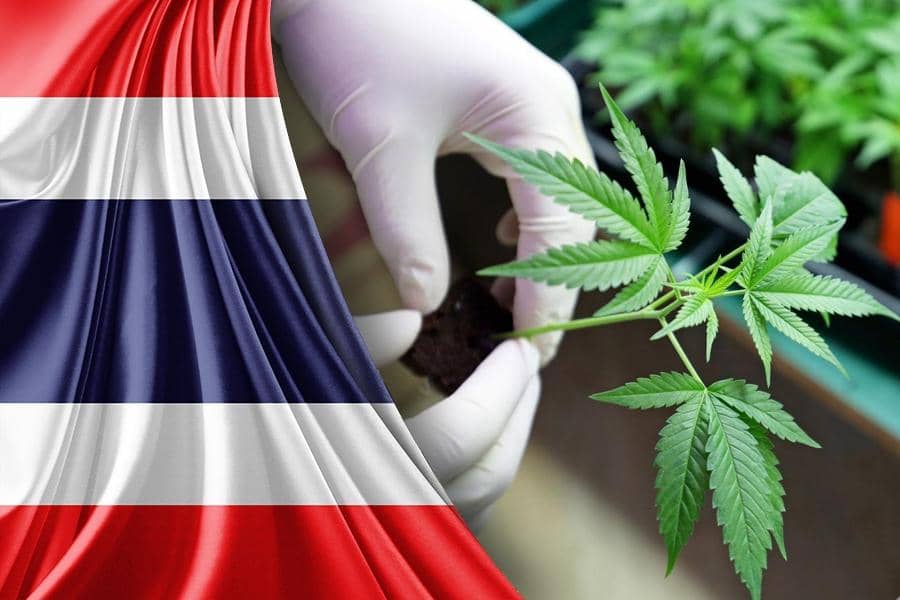
Thailand, which legalized medical cannabis in February of 2019, is leading the paradigm shift, but not without controversy as they proceed to integrate different interests in their jurisdiction. The authorities aim to benefit not only patients, but also researchers, farmers, tourists, and domestic business while protecting the Thai market from big pharma and intellectual property theft, as well as considering international narcotics treaties. This leads to a complex licensing practice and a diffuse schedule of responsibilities to secure strict and safe practices around the medical substance. At the same time, several countries in close proximity also made steps in the direction of legalization. Thailand acknowledges it’s a first-mover advantage and keeps making quick adjustments to the jurisdiction, in order to secure its edge in developing the cannabis sector. This indicates their goals to become a key player in the region. Unsurprisingly so, since Thailand seems destined for good, though competitive cultivation and working conditions and the plant was popular in the traditional Thai medicine for centuries. Further, the unique strategic position as a strong exporting country within the ASEAN Free Trade Area with a widely known medical and tourist sector leaves room for ambition.
- Thailand has a long tradition with cannabis
- Prohibition started in the 1930s, strongly fueled by international pressure
- Thailand was famous for its high-class black market cannabis (“Thai Stick”)
- Cannabis plays an essential part in Thai Traditional Medicine
- Thai law differentiates between “mild” drugs like cannabis or kratom and “hard” drugs
Legalization Process
With the publication of the royal decree in the Royal Gazette on 18 FEBRUARY 2019, MEDICAL CANNABIS WAS OFFICIALLY LEGALIZED. The so-called “Narcotics Act of 2019” is a modification of the Narcotics Act of 1979, whereby cannabis was still classified as a class-5-narcotic, which changed in the process. While the recreational use of the substance remains illegal Thai citizens are now allowed to apply for cannabis treatment following the new legislation. However, they have to exhibit one or more of 38 REGISTERED MEDICAL CONDITIONS which are subjected to cannabis therapy.
Moreover, RESEARCH, CULTIVATION AND PROCESSING, IMPORT AND EXPORT are now permitted. So far, however, several months after the legalization, this is only a vision. Currently, only a few dozen patients are in therapy, and to gain approval seems challenging. While the basic framework of the cannabis legislation was published soon after the resolution, there is a lack of regulatory specifications up until now. Many aspects of the legal procedures are just not defined yet, while others were brought on the way. This delays the formation of suitable supply infrastructure.


Licensing
Jurisdiction and licensing for medical cannabis are not fully in place yet. Nevertheless, a rough framework has been published, stating essential aspects. In general, SEVEN GROUPS were identified and granted licenses, including governmental and research organizations, doctors and practitioners as well as patients. Each of these groups has to follow particular guidelines to obtain permission to either consume, possess, research or produce and trade in cannabis.
To develop the respective guidelines, granting licenses and reviewing them are shared duties of the ONCB (Office of Narcotics Control Board), the Thai FDA (Food and Drug Administration) and the MINISTRY OF PUBLIC HEALTH. The GPO (Government Pharmaceutical Agency) furth plays a significant role as the state-owned research agency. Detailed regulations on cultivation and manufacturing will most likely be based on the findings of their research and their assessment of suitable methods. Together with the new legislation allowing for medical cannabis an EVALUATION PERIOD OF 5 YEARS was determined.
Moreover, PRIVATE COMPANIES are not yet explicitly among the seven groups permitted to hold licenses. This does not necessarily mean that private enterprises are excluded from the market. Nevertheless, at this point, it determines that private companies who want to cultivate cannabis must work in cooperation and under license of one of the authorized groups. The company further must be registered under Thai law, have an office registered in Thailand, and at least two/thirds of directors, partners or shareholders must be Thai nationals. A protective measure by the Thai government which protects state-owned investments against big players from overseas. These limitations are specified in the “Guideline for approval of a request for plantation of cannabis B.E. 2562”, which defines FOUR GROUPS qualified for APPROVAL FOR CULTIVATION:
- GOVERNMENTAL AUTHORITIES with duties in relation to research, teaching or provision of public services,
- INSTITUTIONS OF HIGHER EDUCATION under the law of private institution of higher education,
- PERSONS OF AGRICULTURAL PROFESSION who collectively join the registered community enterprise
- OTHER APPLICANTS AS ANNOUNCED by the Minister in ministerial regulations under the approval of the Committee.
According to the Bangkok Post, there are currently about 390 DOCTORS, PHARMACISTS, AND DENTISTS permitted to prescribe cannabis medicine (which represents approximately 1% of the professionals of medicine). Besides, permanent secretary for public health stated that around 100 HOSPITALS HAVE ISSUED REQUESTS to the ministry to use medical cannabis.
- Medical cannabis can be prescribed to patients showing symptoms of some 38 conditions
- Cannabis oils are the most popular form of application, with pills and drops being an alternative
- Import and export should be allowed in the future, but not before a few years.
- Currently, there is no sufficient supply to meet the high demand.

Current situation
Currently in Thailand, the situation with cannabis has evolved significantly since the legalization of medical marijuana in 2018. While recreational use of marijuana remains illegal, the country has been making strides in expanding access to medical cannabis and exploring the potential economic benefits of the cannabis industry.
The Thai government has been working to develop regulations and policies to facilitate the growth of the medical marijuana industry. This includes allowing for the cultivation of cannabis by licensed producers, establishing medical cannabis clinics, and promoting research and development in the field.
In addition, there has been growing interest in using cannabis for wellness and recreational purposes, particularly in the form of hemp-based products such as CBD oils and supplements. These products, which contain low levels of THC (the psychoactive compound in marijuana), are legal in Thailand and have been gaining popularity.
Overall, the cannabis industry in Thailand is still in the early stages of development, but there is a sense of optimism about the potential for growth and innovation in this sector. It’s important for individuals to stay informed about the laws and regulations related to cannabis in Thailand to ensure compliance and avoid legal issues.
